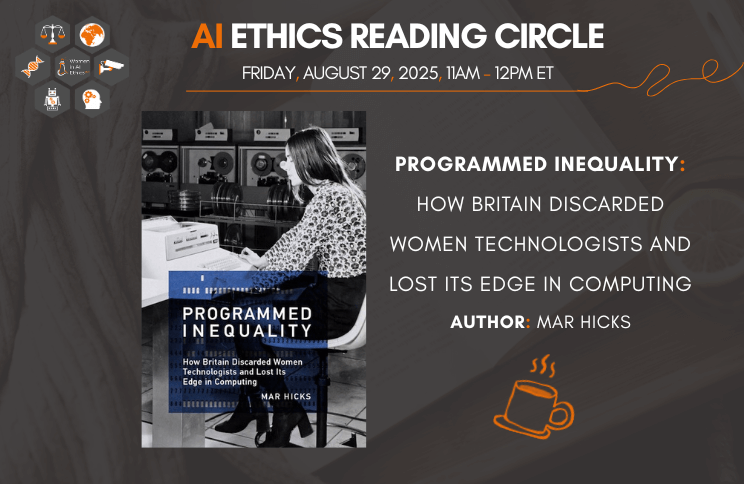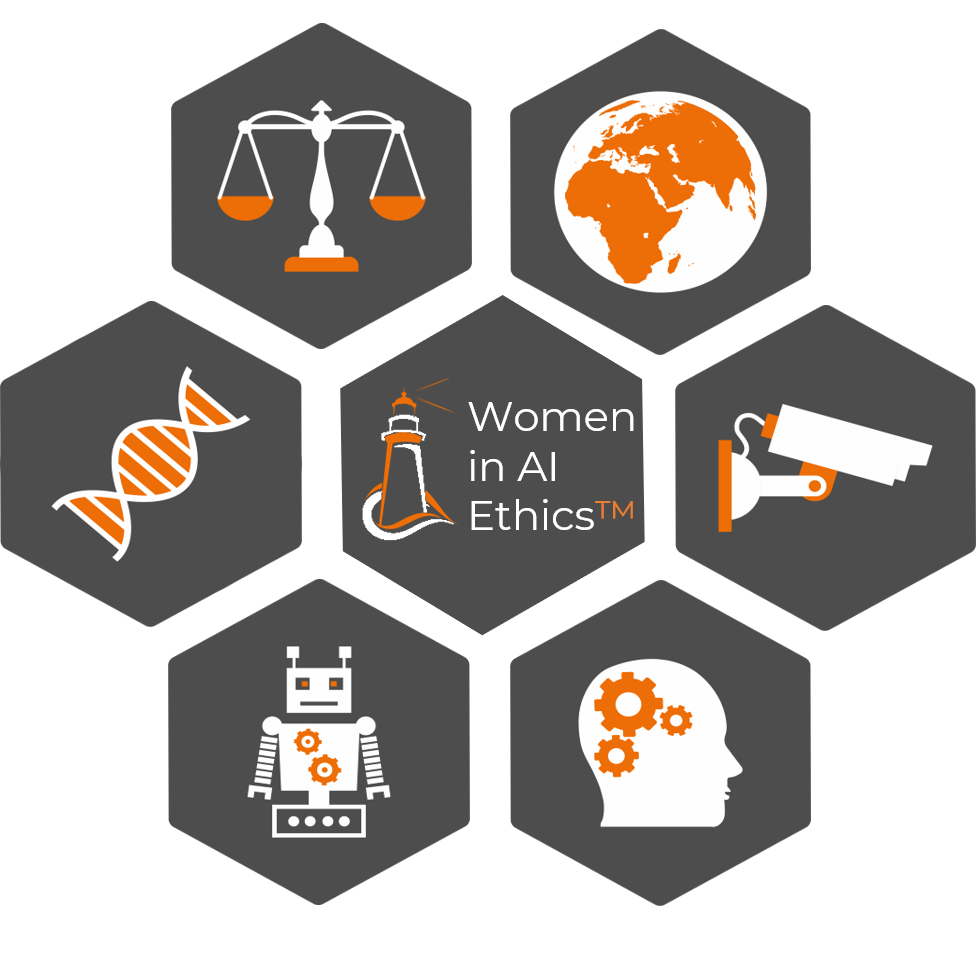
EVENTS

- This event has passed.
Reading Circle – Programmed Inequality by Mar Hicks, Friday, August 29
August 29 @ 11:00 am - 12:00 pm EDT

Join us on last Fridays at 11a ET for our monthly AI Ethics Reading Circle, where we discuss critical works by authors and scholars from marginalized and underrepresented communities in tech.
BOOK TITLE: Programmed Inequality: how Britain discarded women technologists and lost its edge in computing, MIT Press, 2017
AUTHOR: Mar Hicks
BUY THE BOOK: WAIE affiliate bookstore (support independent bookstores)

In 1944, Britain led the world in electronic computing. By 1974, the British computer industry was all but extinct. What happened in the intervening thirty years holds lessons for all postindustrial superpowers. As Britain struggled to use technology to retain its global power, the nation’s inability to manage its technical labor force hobbled its transition into the information age.
In Programmed Inequality, Mar Hicks explores the story of labor feminization and gendered technocracy that undercut British efforts to computerize. That failure sprang from the government’s systematic neglect of its largest trained technical workforce simply because they were women. Women were a hidden engine of growth in high technology from World War II to the 1960s. As computing experienced a gender flip, becoming male-identified in the 1960s and 1970s, labor problems grew into structural ones and gender discrimination caused the nation’s largest computer user–the civil service and sprawling public sector–to make decisions that were disastrous for the British computer industry and the nation as a whole.
Drawing on recently opened government files, personal interviews, and the archives of major British computer companies, Programmed Inequality takes aim at the fiction of technological meritocracy. Hicks explains why, even today, possessing technical skill is not enough to ensure that women will rise to the top in science and technology fields. Programmed Inequality shows how the disappearance of women from the field had grave macroeconomic consequences for Britain, and why the United States risks repeating those errors in the twenty-first century.
AUTHOR BIO:

Mar Hicks is a historian of technology who investigates how gender and sexuality change what we think we know about technological progress and the global “computer revolution.”
They are currently an Associate Professor at The University of Virginia’s School of Data Science, in Charlottesville, where they do research and teach courses on the history of technology, computing and society, and the larger implications of powerful and widespread digital infrastructures.
Their award-winning book, Programmed Inequality: How Britain Discarded Women Technologists and Lost Its Edge in Computing, investigates why the proportion of women declined as electronic computing matured, and how this labor situation had grave effects on the technological aspirations of that waning superpower. It shows what lessons this holds for other nations, especially the United States, and how history can help us make sense of the present and the future by focusing not just on technological success stories, but also stories of technological failure.
Margot Shetterly, author of Hidden Figures, has called it an “important lesson for scholars and policymakers seeking ways to improve inclusion in STEM fields.” Maria Klawe, President of Harvey Mudd College and an expert on diversity in STEM, has described the book as “one of the best researched and most compelling examples of the negative impact of gender and class discrimination on a country’s economy.”
RELATED LINKS:
- Author website
- Programmed Inequality: How Britain Discarded Women Technologists and Lost Its Edge in Computing
- Your Computer is on Fire (MIT Press)
- Research Affiliate, Centre for Democracy and Technology, University of Cambridge
- Member, Scholars’ Council, Center for Critical Internet Inquiry, UCLA
Associate Editor, IEEE Annals of the History of Computing
